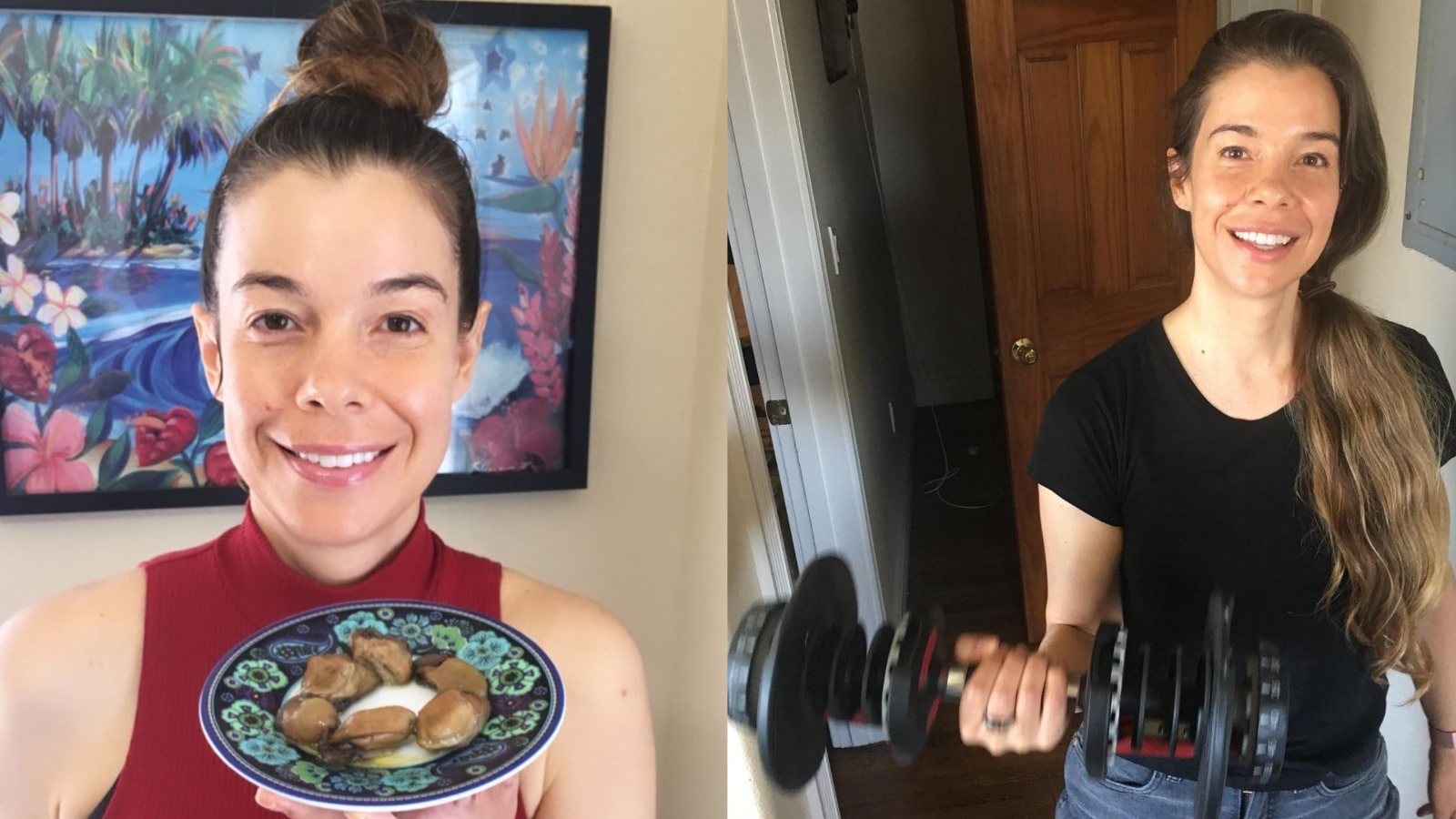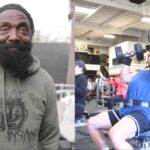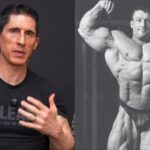Co-founder of FoundMyFitness Dr. Rhonda Patrick continues to provide enlightening research-backed information on health and exercise. In her latest endeavor, she discussed the utility and limitations of intermittent fasting.
Dr. Rhonda Patrick has quickly established herself as a leading name in the fitness community. With over half a million YouTube subscribers, Patrick offers easy-to-understand breakdowns of complex topics. And given that she completed her graduate research on mitochondrial metabolism at St. Jude’s Children’s Research Hospital, her opinions regarding wellness are highly respected.
From appearances on the Joe Rogan Experience to conversations with ‘The Hypertrophy Specialist’ Brad Schoenfeld to Dr. Peter Attia, Patrick never shies away from explaining how the body works or offering insight to her growing fanbase.
Intermittent fasting is a diet plan where you alternate between periods of fasting and eating. During the fasting period, you don’t eat, and during the eating period, you can eat normally. This method has many benefits, with weight loss being one of the most notable. It can be a great help for people dealing with weight issues. Considering its popularity, Patrick took a closer look at the diet.
Dr. Rhonda Patrick Explains Why Intermitted Fasting Isn’t a Miracle Diet Plan
Dr. Rhonda Patrick begins by defining intermittent fasting, and why sometimes, users of this diet begin to habitualize skipping meals.
“Time-restricted feeding or time-restricted eating, it’s a form of intermittent fasting, right? I think that many people when they think about intermittent fasting they think okay, well I just need to skip a meal. I need to have a period – I need to extend my period of time where I’m not eating and the easiest way to do that is to skip a meal.”
She adds that different parts of the body operate in tandem with a circadian rhythm, including our metabolisms.
“Basically there’s a circadian reason to eat your food within a certain time window and then have a period of rest and fasting, right? So, everything on our body runs on a clock and including our metabolism. So, we’re most insulin-sensitive in the morning and least sensitive in the evening, right? So your blood glucose levels will go much higher with the same carbohydrate in the evening versus the morning. Calories are the same, everything is the same.”
“There’s also some argument to be made that you just need a period of rest. Your gut digestion, energy is being diverted to do that when you’re digesting food. That’s a big thing. There’s also a lot of responses that happen after you eat a meal, causing inflammation and things like that that divert energy there. It’s taking energy away from other things like repair.”
What makes intermittent fasting powerful is that the body tends to repair itself more readily when it doesn’t have to digest food, often making sleep restorative and mentally refreshing.
“Repairing processes usually happen when you’re in a fasted state. Just like when you’re sleeping, your brain shuts down right? If you didn’t sleep, your brain is not going to repair. You need that rest period. The same goes for other organs. They need a rest period”
At times, Dr. Patrick stresses that longer rest periods result in more effective repairing processes for the body.
“And, so it’s really important to have that rest period, right? The longer the rest period is the better, in terms of having enough energy to do those repair processes, things like that require energy and there’s also other reasons as well,” said Dr. Rhonda Patrick.
Dr. Patrick discussed how resistance training can help prevent women who intermittently fast from losing muscle mass.
“There have been studies done, for example, women that are doing time-restricted feeding. They will not lose muscle mass if they are doing resistance training,” explains Patrick.
“It mitigates the atrophy,” said Patrick. “Not if you’re getting enough protein. Not in that study, at least. I think if you’re not getting enough protein within a 24-hour period, yes.”
According to Dr. Patrick, it takes five hours after your last bite of food to be in a fasted state.
“The time-restricted eating, there’s a couple good ways to think about it. You want to stop eating about three hours before you go to bed, if possible. Yes. Yes. Because, you got to add another, last bit of food in mouth doesn’t mean I’m now in a fasted state, you got to calculate five hours after that. It takes about five hours to digest.”
“You don’t have to skip your meal. You can eat your food in an eight hour period and fast for 16 hours without having to skip a meal, most of the time, unless you’re an entertainer and your meals do come later. You can still, everything is just shifted over.”
While time-restricted eating/intermittent fasting can be a valuable tool for moderating one’s health, Dr. Patrick warns that it’s not a miracle diet.
“If you looked at the time-restricted feeding and the weight loss, a lot of the weight loss was due to calorie restriction. Because people were just actually eating less, they were skipping meals. It’s like yeah, a lot of weight loss, when it comes to weight loss, calories in, calories out matter, energy balance.”
Lastly, Dr. Patrick highlighted that some people are more prone to losing muscle during intermittent fasting than others.
“Most people that are obese even overweight, they can actually fast and not lose as much muscle. Some people will go on a fast or limit their – they skip meals basically, and they can lose up to 30% of their weight will come from muscle. It’s crazy unless you do resistance training.”
When it comes to health optimization and exercise, Dr. Patrick is constantly outlining new innovative ways to reach physical excellence. Recently, she unveiled a ‘4×4’ Norwegian training protocol that had the potential to reduce cardiac structure aging by 20 years.
There’s no denying Dr. Rhonda Patrick has a profound impact on those in fitness. While she credits intermittent fasting as a valuable tool for weight loss, she cautions against those who overestimate its abilities.
RELATED: Dr. Rhonda Patrick Unveils HIIT Workout Benefits for Mitochondria, Glucose, and Heart Health
You can watch the full video from the Chris Williamson YouTube channel below:
Tip: If you're signed in to Google, tap Follow.









